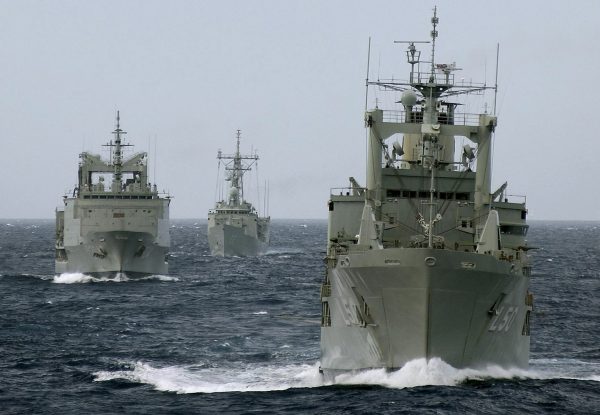The glitz and glam that accompany such talk shops fail to hide that little is achieved by way of concrete accomplishments. The 2019 IMSC was striking for the emphatic consensus among its international delegates and participants over the need to strengthen the maritime rules-based order. A number of things are noteworthy about the conference deliberations.
First, the shared perception of the need for a strong and viable rules-based order and the collective will to preserve and enhance it was evident among the participants. The focus of this IMSC was very much on principle rather than power, despite the formidable presence of the world’s most powerful navies. Principles belonging to the United Nations Convention of the Law of the Sea (UNCLOS) were stressed most among delegates.
Participants frequently made the point that the seas are a maritime commons, whose ‘free and equitable’ use can only be effectively ensured through adherence by all signatories to UNCLOS. Crucially, adherence to the entirety of UNCLOS was emphasised, rather than the selective observance shown by some parties — including claims by regional states that do not abide by the terms of UNCLOS.
Second, the participants demonstrated widespread appreciation for the need to establish and implement concrete measures in support of the rules-based order. There have been a growing number of maritime exercises among the region’s navies aimed at developing familiarity with the Code for Unplanned Encounters at Sea (CUES). These include the exercise conducted by ASEAN navies with the Chinese People’s Liberation Army Navy in 2018, and the one they will conduct with the US Navy later in 2019.
The participants deliberated at length on operational mechanisms and procedures that regional countries could adopt to prevent miscalculations and defuse tensions should their ships and aircraft encounter one another unexpectedly. The South China Sea code of conduct that ASEAN and China are working to establish — both sides have already agreed on a single negotiating text — was also mentioned.
The developments that earned the most plaudits among the navy chiefs were institutional forms of multilateral cooperation. These include the Information Fusion Centre and the Regional Cooperation Agreement on Combating Piracy and Armed Robbery against Ships in Asia, both based in Singapore. These modalities were valued for the opportunities they provide Asia Pacific navies and maritime forces to collaborate in highly practical and substantive ways in response to common transnational challenges. Challenges include piracy, sea robbery, maritime terrorism, contraband smuggling, illegal fishing and irregular human migration.
Third, the IMSC participants acknowledged the need for open and inclusive dialogue at the strategic level. The Asia Pacific today is replete with forums for multilateral dialogue and consultation. The litmus test is whether they actually contribute to building mutual trust and confidence among regional countries, paving the way to substantive cooperation.
The tenor of the IMSC discussions reflected that intra-regional trust and confidence do not emerge out of nothing. The naval and maritime operators understood that practical collaboration, dialogue and trust building are complementary approaches without which no effective solutions to the region’s maritime security challenges could be possible.
Finally, the context within which the central importance of the rules-based order was enthusiastically underscored by delegates merits comment. The vigorous advocacy for UNCLOS came in the wake of a featured speaker’s attempt to dismiss UNCLOS as a tool of Western domination. In his opinion, UNCLOS disregarded Asian values and perspectives. His criticism elicited a long line of respondents — the majority of whom were Asian — all seeking to dispute his claim and defend the universality of UNCLOS and international law.
This reflected the shared commitment among the world’s maritime practitioners to the rules-based order. Their readiness to privilege peace-based principles over power is the best antidote to an Asia Pacific maritime domain increasingly marked by mistrust and tension.
Dr See Seng Tan is Deputy Director, Head of Research and Professor at the Institute of Defence and Strategic Studies, the S. Rajaratnam School of International Studies (RSIS), Nanyang Technological University (NTU), Singapore. In July 2019, he will take up appointment as President/CEO-elect of International Students, Inc. (ISI), a non-profit organisation based in the United States.

